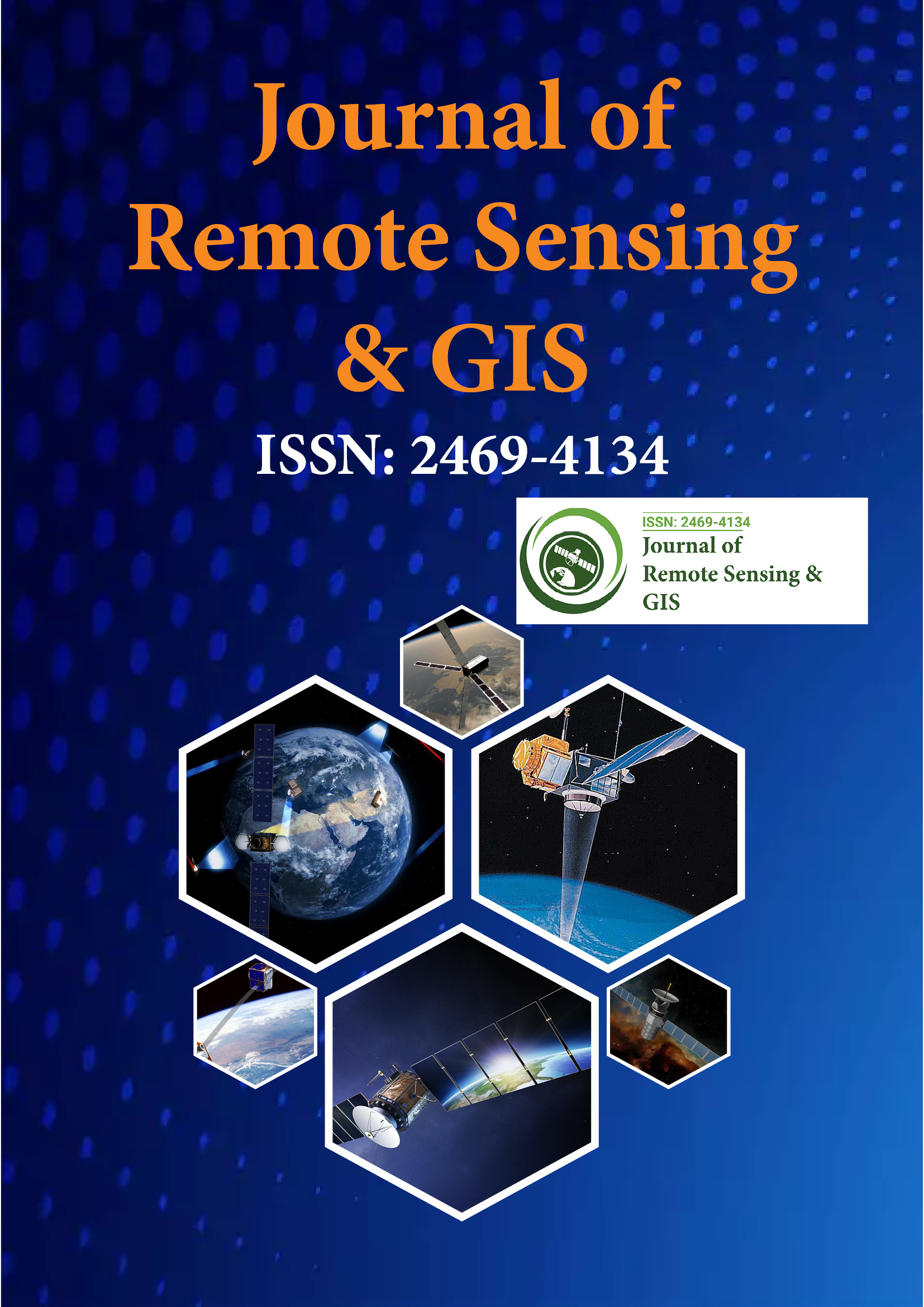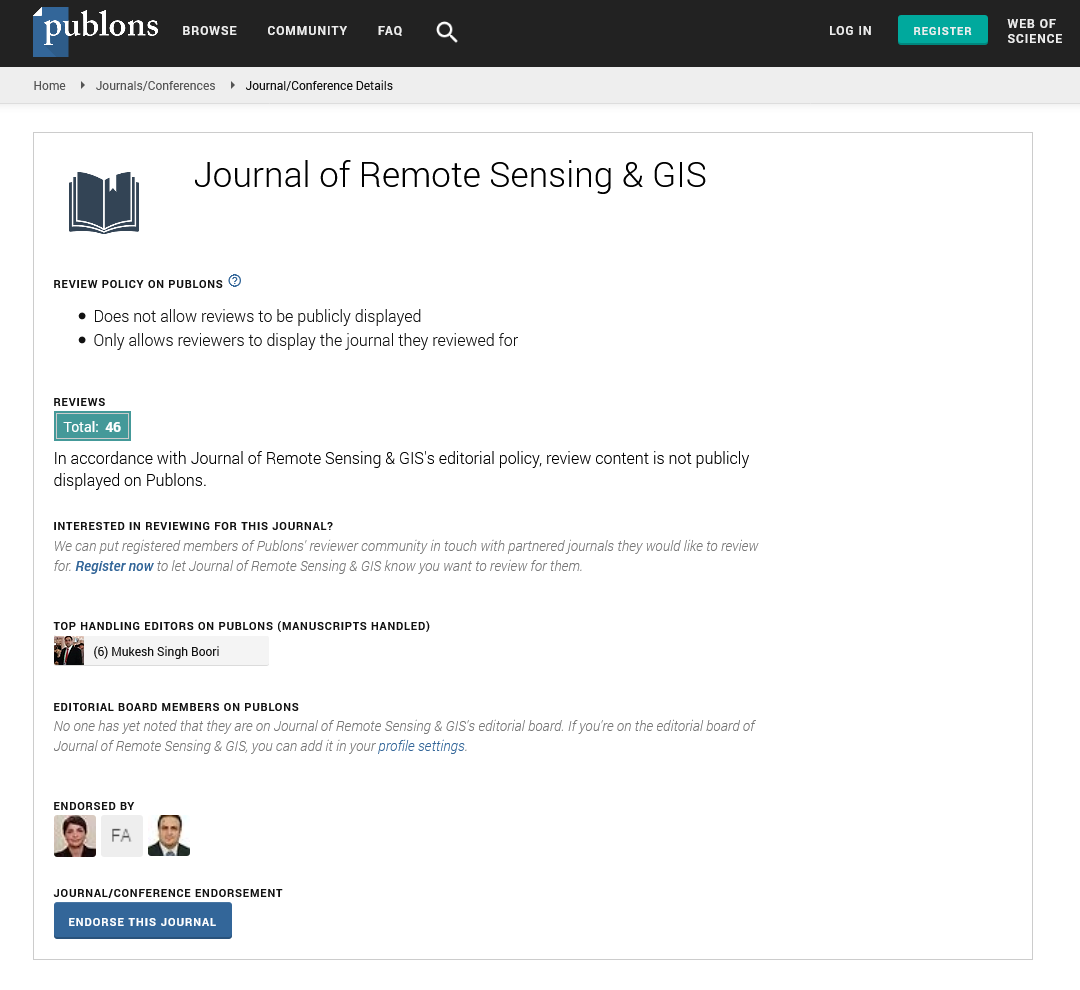Indexed In
- Open J Gate
- RefSeek
- Hamdard University
- EBSCO A-Z
- OCLC- WorldCat
- Publons
- International Scientific Indexing
- Euro Pub
- Google Scholar
Useful Links
Share This Page
Journal Flyer

Open Access Journals
- Agri and Aquaculture
- Biochemistry
- Bioinformatics & Systems Biology
- Business & Management
- Chemistry
- Clinical Sciences
- Engineering
- Food & Nutrition
- General Science
- Genetics & Molecular Biology
- Immunology & Microbiology
- Medical Sciences
- Neuroscience & Psychology
- Nursing & Health Care
- Pharmaceutical Sciences
Synthesizing information in remote sensing images based on an adaptive accumulation of evidence
4th International Conference on GIS and Remote Sensing
September 27-28, 2018 | Berlin, Germany
Gloria Bordogna, Alessia Goffi, Daniela Stroppiana, Mirco Boschetti, Sandro Brivio and Monica Pepe
CNR IREA, Milano, Italy
Scientific Tracks Abstracts: J Remote Sensing & GIS
Abstract:
One of the main problems of territorial decision makers when using multisource geo big data, and in particular remote sensing derived products, is the so called data overloading situation in which they might experience redundancy and possibly, inconsistency of data, which may cause them to doubt on the reliability and suitability of the data for taking decisions. Flexible and adaptive methods for big geo data synthesis are thus needed to overcome such impasse. Such methods should be capable to extract from multisource data, both compact maps, namely environmental status indicators maps, to understand the status of the environment, and metadata to understand the risk they can run when taking decisions on the basis of the information derived from the indicators maps. This means providing decision makers with a measure of the risk-prone and risk-adverse decision attitude modelled by the function generating the synthetic indicator map and an estimation of the omission and commission errors that this function can produce. In this contribution, we propose an adaptive fuzzy approach for the flexible generation of synthetic indicators maps from remote sensing and in situ geotagged observations. It exploits fuzzy operators to fuse multiple evidences extracted from remote sensing images. The semantic of the operator initially chosen to suit a desired decision attitude of the stakeholder is optimized via a learning algorithm which exploits in situ observations so as to generate an indicator map that minimizes both omission and commission errors. The method will be illustrated by considering the case study of flooded area mapping in a region in North of Italy.
Biography :
Gloria Bordogna is a Senior Researcher of CNR IREA since 2001, Member of EUSFLAT and IFSA Fellow since 2017. Her research activity concerns the modeling and management of imprecision and uncertainty within information retrieval systems and database management systems by means of soft computing. Her current interests are spatio-temporal analytics, quality assessment of crowdsourced geotagged information, and flexible fusion of geo big data.
E-mail: bordogna.g@irea.cnr.it

